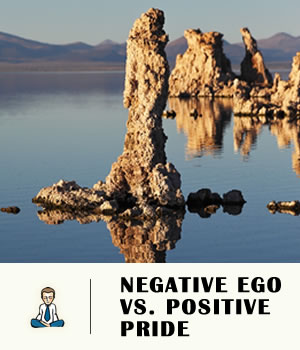
“Give up the drop. Become the ocean.” – Rumi
How much does negative ego cost your company? It leads to lack of teamwork, promotes fear, creates a scarcity mindset wherein people believe that there simply isn’t enough to go around. This fosters an antagonistic environment that affects both work and profitability.
Some analysts estimate that ego accounts for six percent in lost revenue. If this is true, then the annual “cost of ego” would translate to nearly $1.1 billion for the average Fortune 500 company. Negative ego can also lead us to turn our back on innovation and make other regrettable mistakes. Here are some examples that demonstrate where ego could have played a part:
This is how William Orton, President of Western Union Telegraph, responded to Alexander Graham Bell’s offer to sell the patent for the telephone for $100,000: “What use could this company have for an electrical toy?”
Robert Uihlein, CEO of Schlitz Brewing Company, was able to drastically reduce his beer’s brewing time by replacing the barley in the formulation with corn syrup. This move got the product to market faster, which resulted in better short-term profits. However, it was a failure in the long term after customers realized that the new formula tasted terrible, and quickly broke down into a mucus-like, thick consistency. Schlitz’s fall from grace was quick.
Positive pride, on the other hand, means you believe in yourself, in your capacity; you believe you’re gifted, and that’s okay, as long as you use that pride to make the world a better place, to create positive change and live a wonderful life.
You were brought into this world for success, not failure. If you don’t believe in yourself, nobody else will. We admire the glory of the stars, the abundance of the ocean and the beauty of the changing seasons. These attributes spring from a universal benevolence.
With positive pride and self-esteem, we can value these gifts and use them to make a difference. There is a story among the Sufis about an eagle flying high in the sky, admiring his own beauty, and “looking down” on things on the ground. These egotistical thoughts are abruptly terminated when an arrow strikes the bird and it falls to the ground. The eagle can’t believe it has been hit – especially by a piece of metal. Then it sees its feathers on the ground and exclaims, “It is the feathers that made me fly high in the sky and they are the same feathers that make me fall to the ground.” Moral of the story: we all have positive pride that can help us soar the skies of success but we also have ego that can destroy us.
Keep the bigger picture in mind. Have clear long- and short-term goals, which will create accountability in your life. Say no to unimportant activities. Write out your personal mission statement and long-term (one to three years) and short-term (one to three months) goals. Read them every morning and night.
Here’s an example of my personal mission statement:
“Shine my light and inspire others to shine their light. To be a loving father, husband, son and human being.”
People with positive pride and self-esteem obviously value their own talents, but do not remain centered on them. They are willing to accept and appreciate the input of others, and are valued for who they are. Their self-esteem places them in high positions; they get good results and their involvement with people around them earns them respect and genuine admiration.
So let go of your negative ego and embrace positive pride.